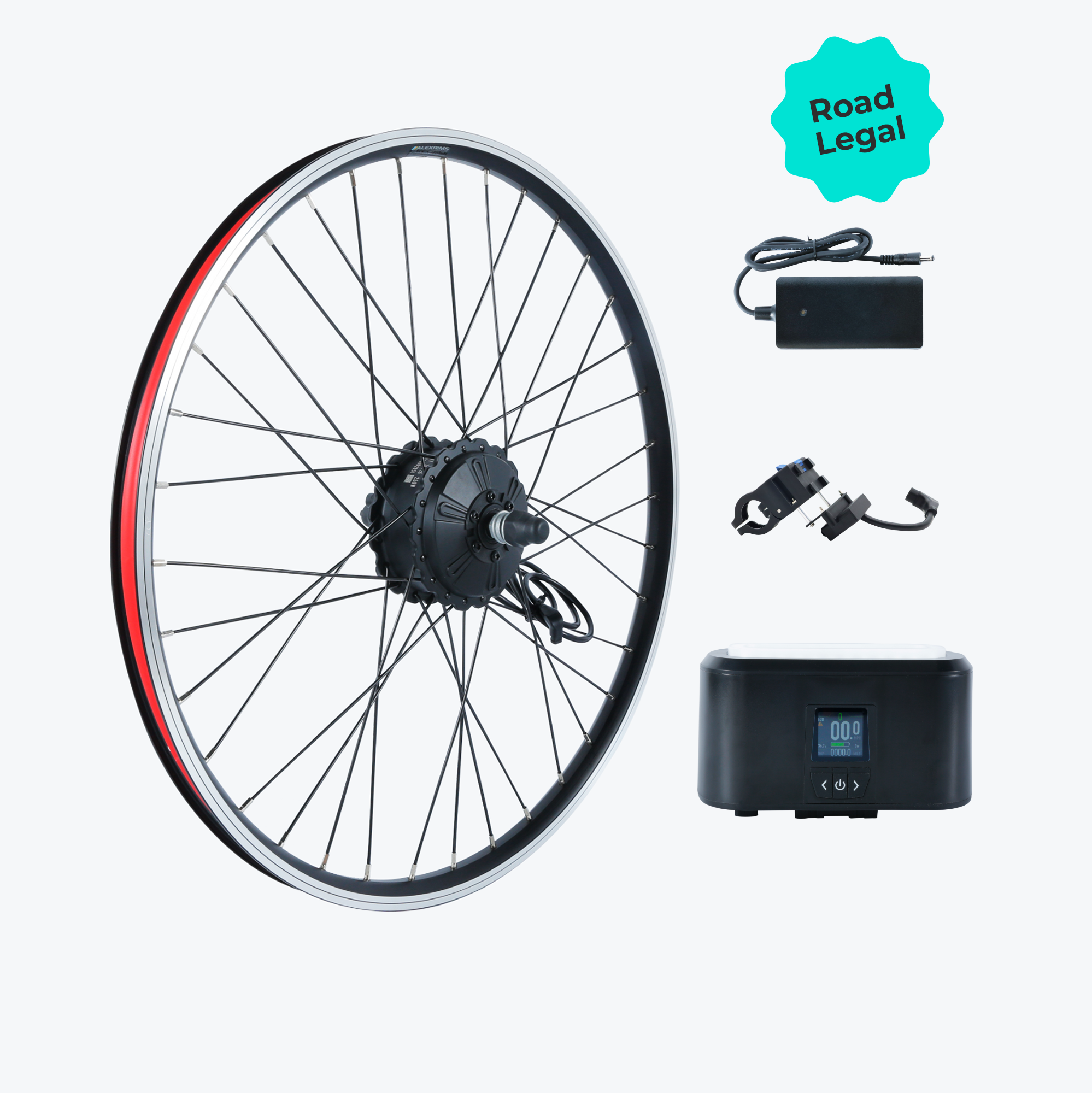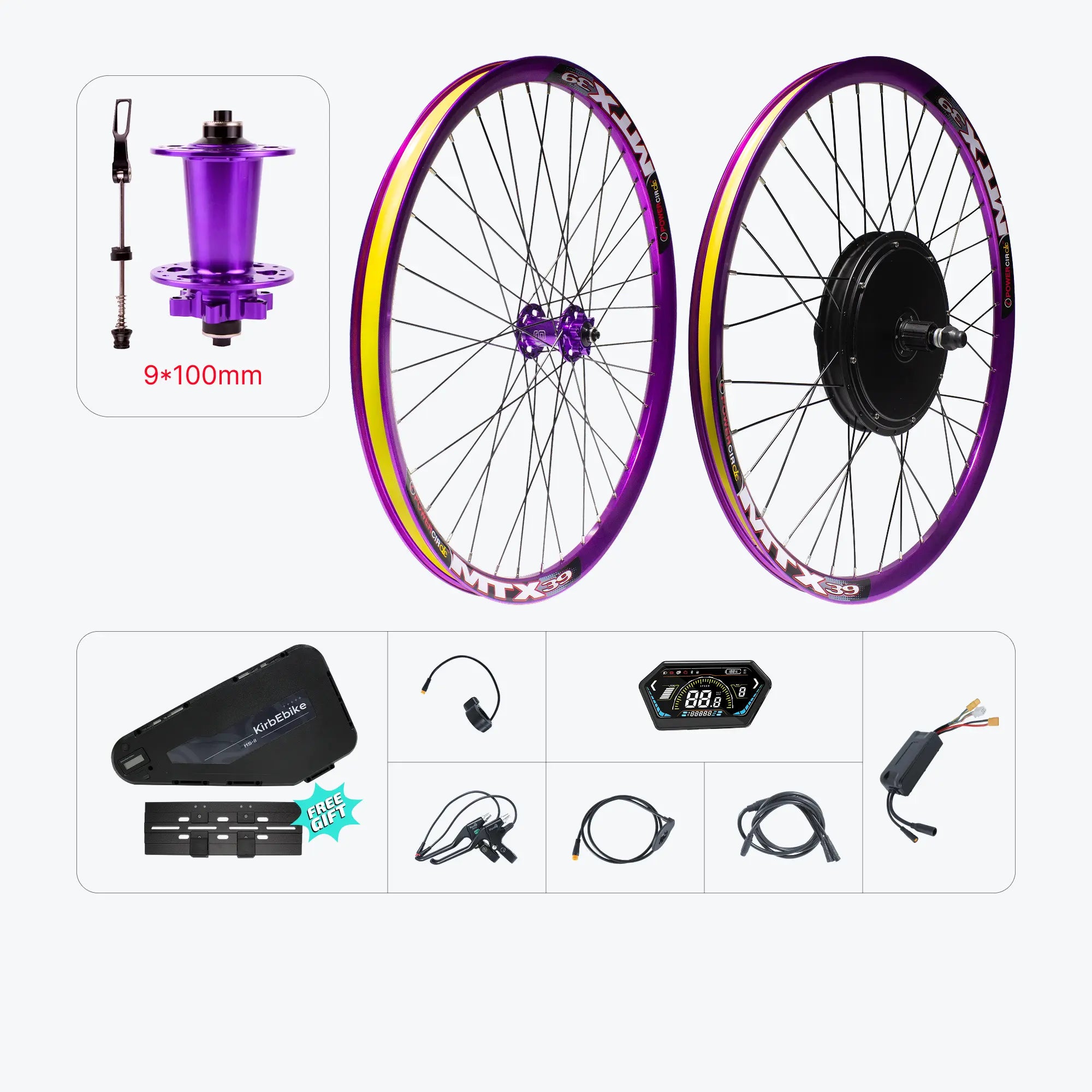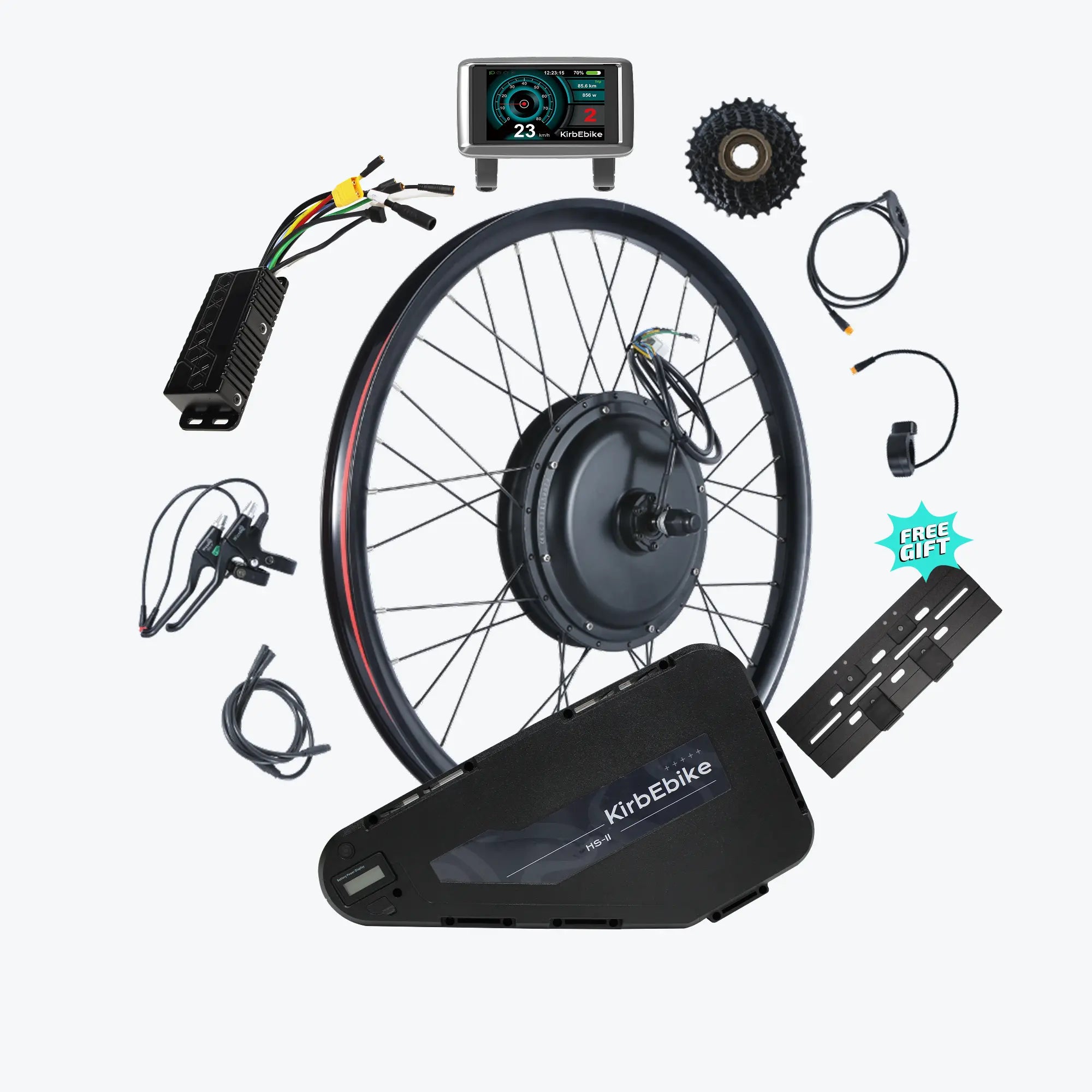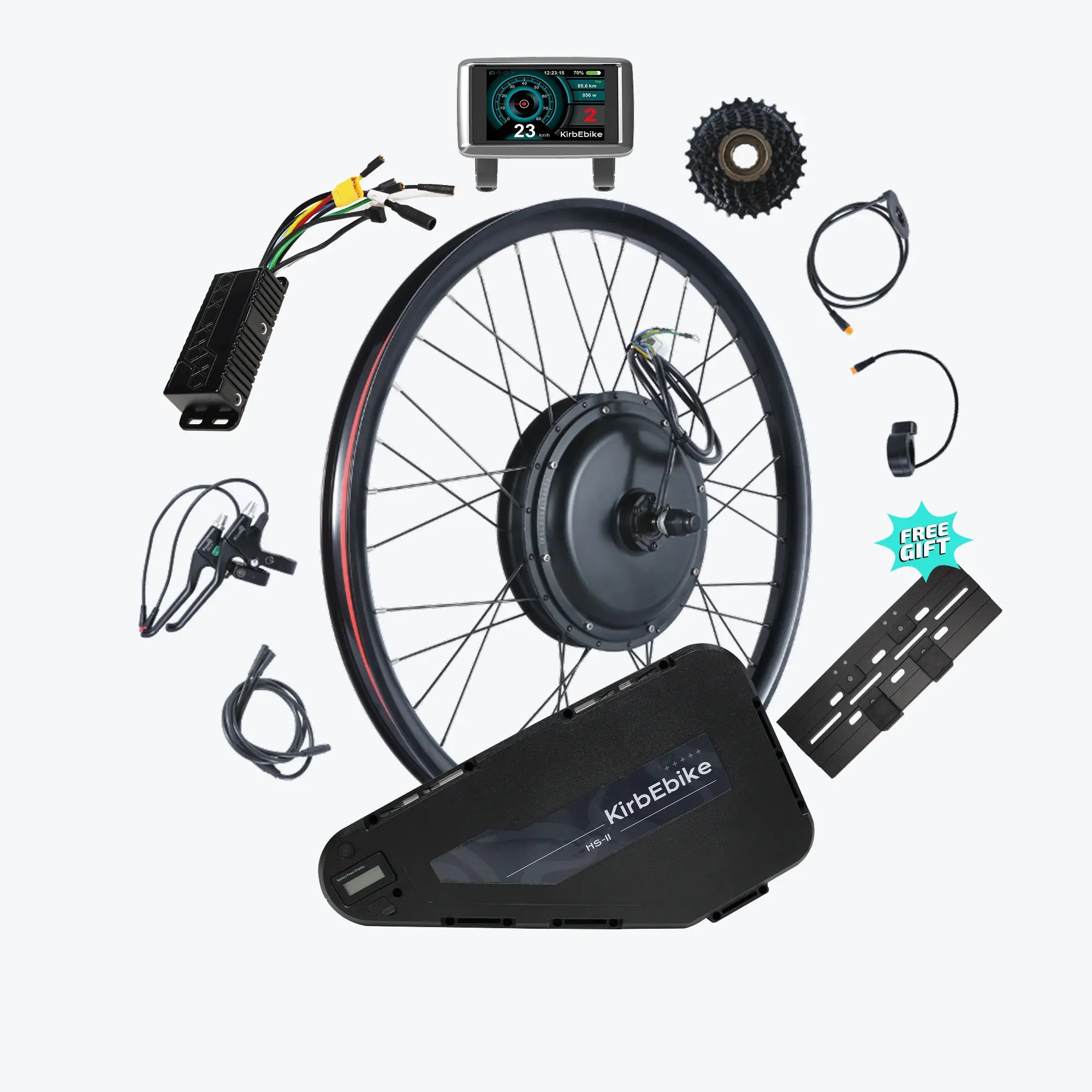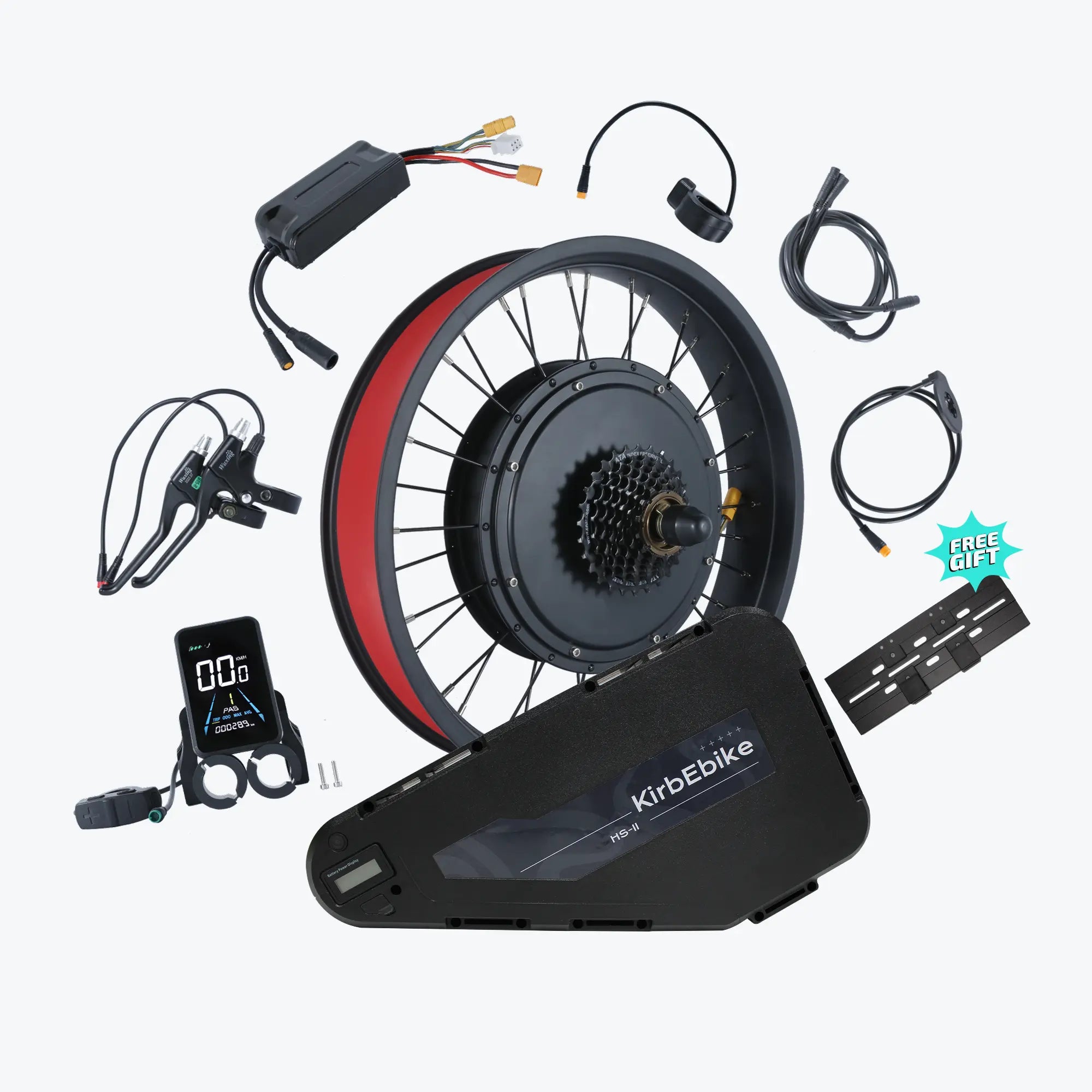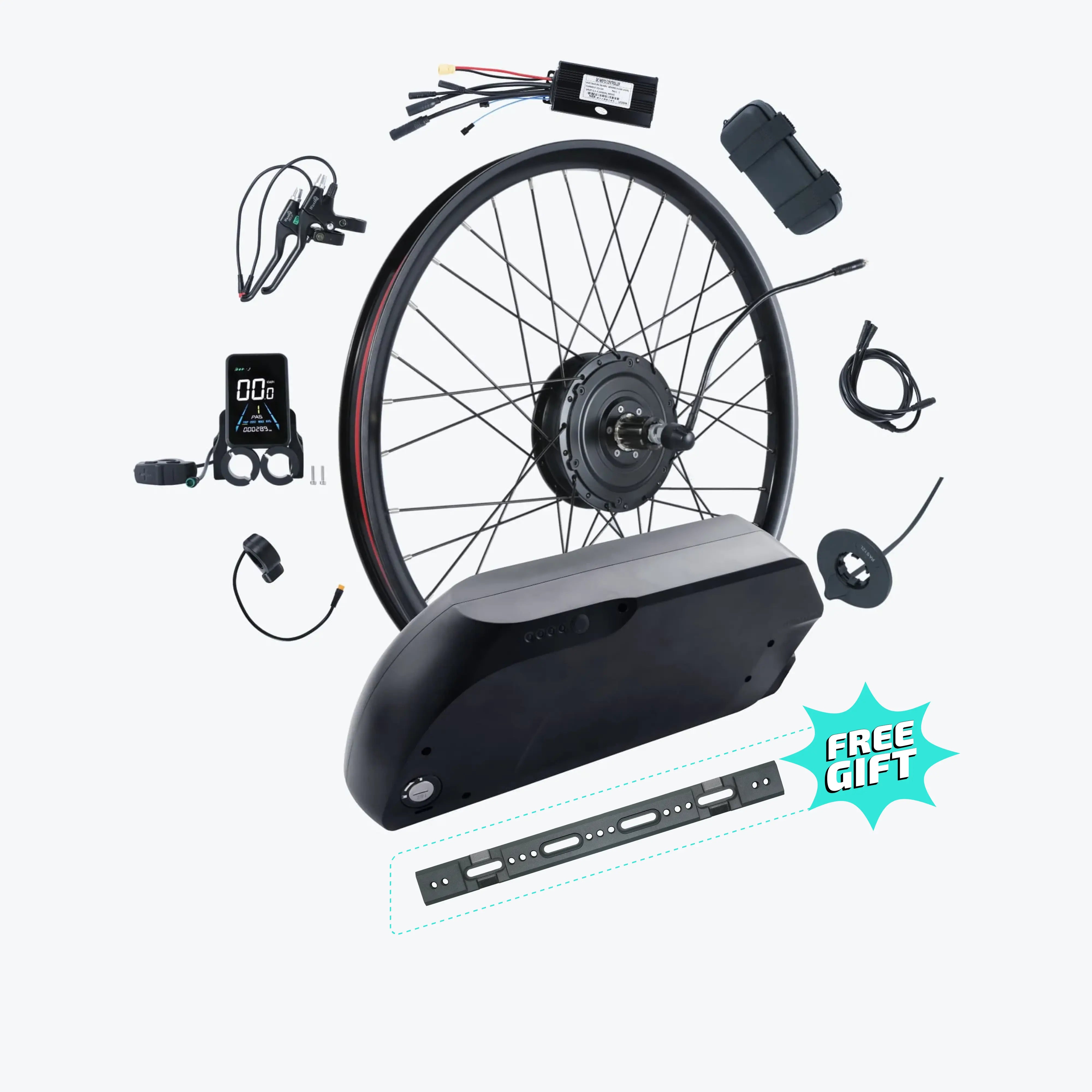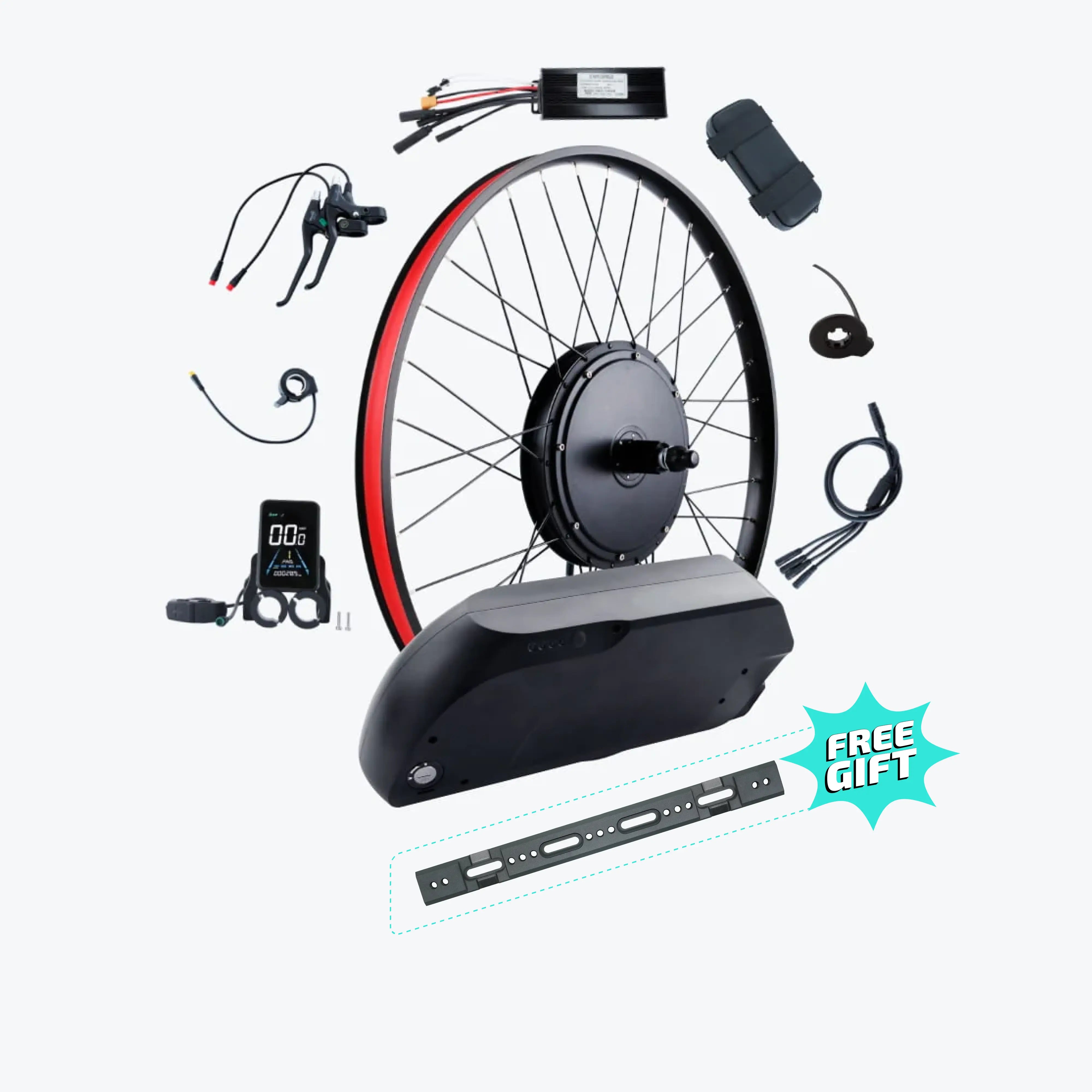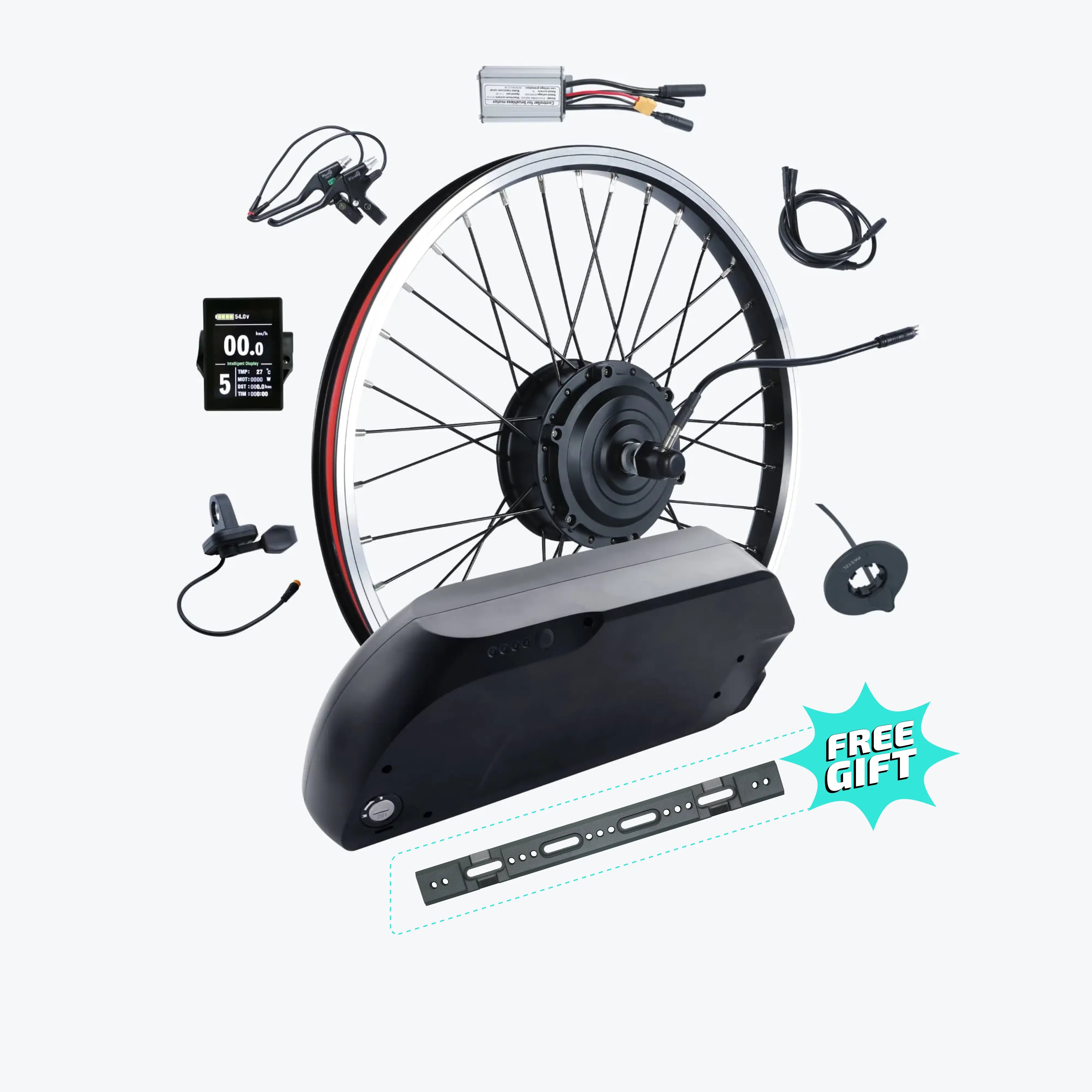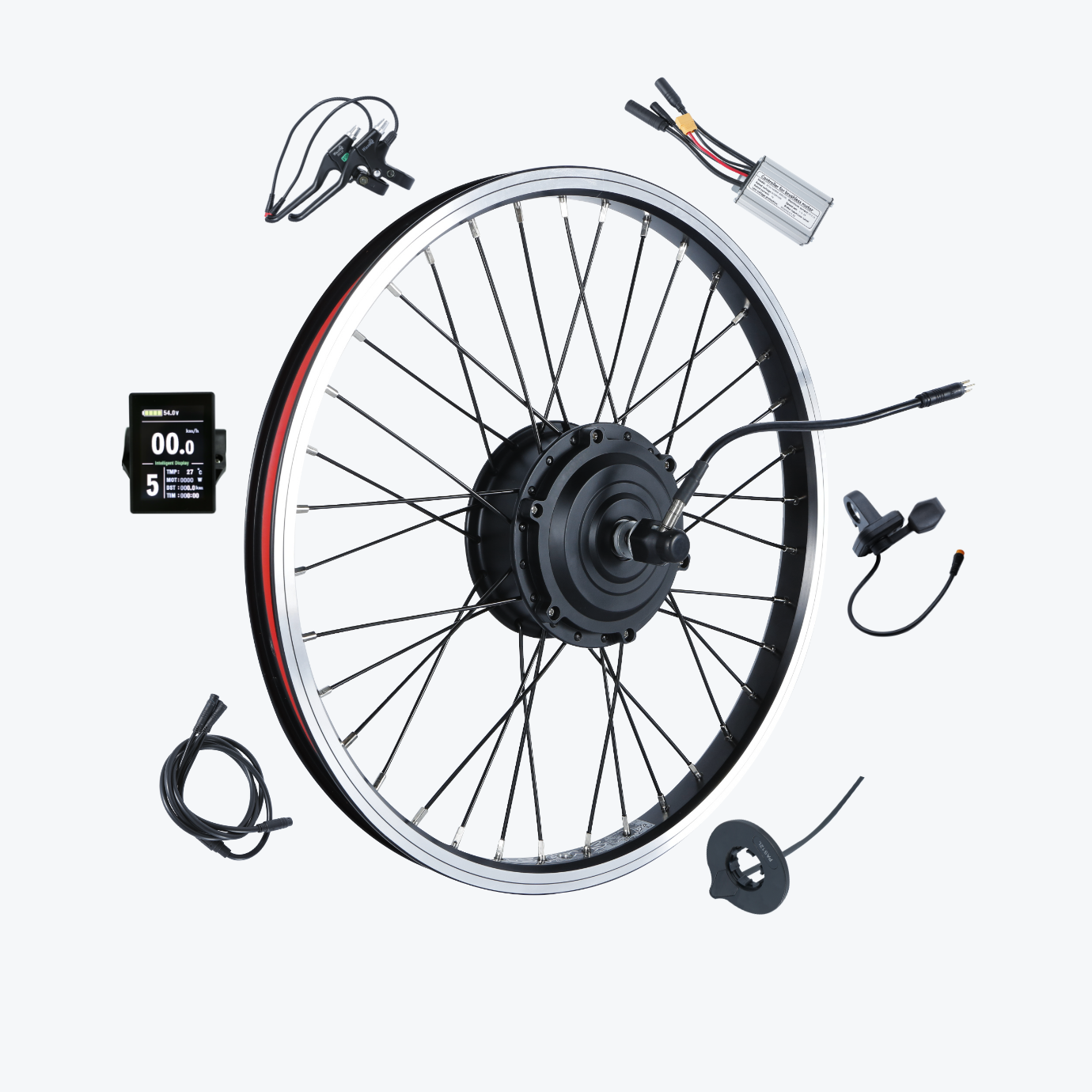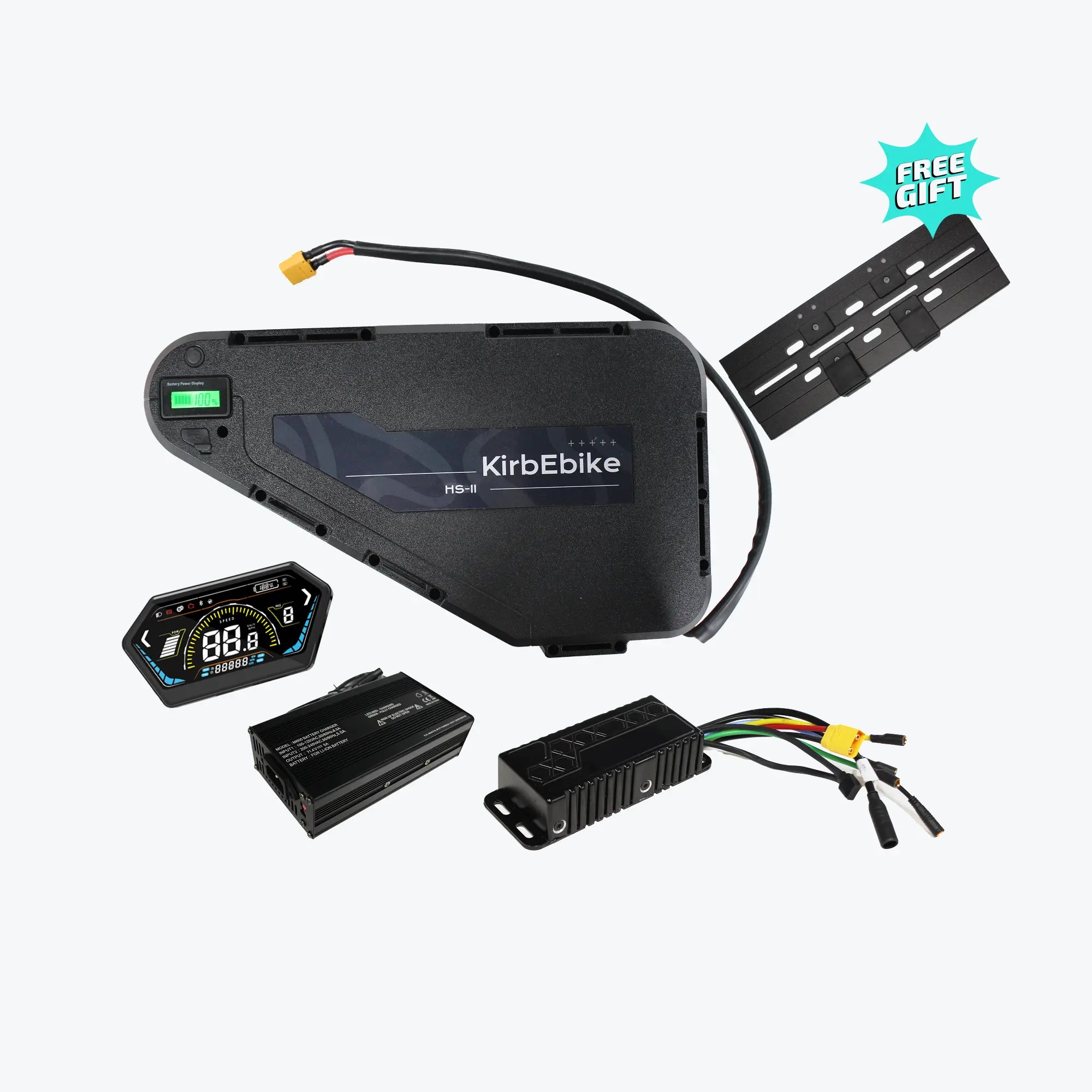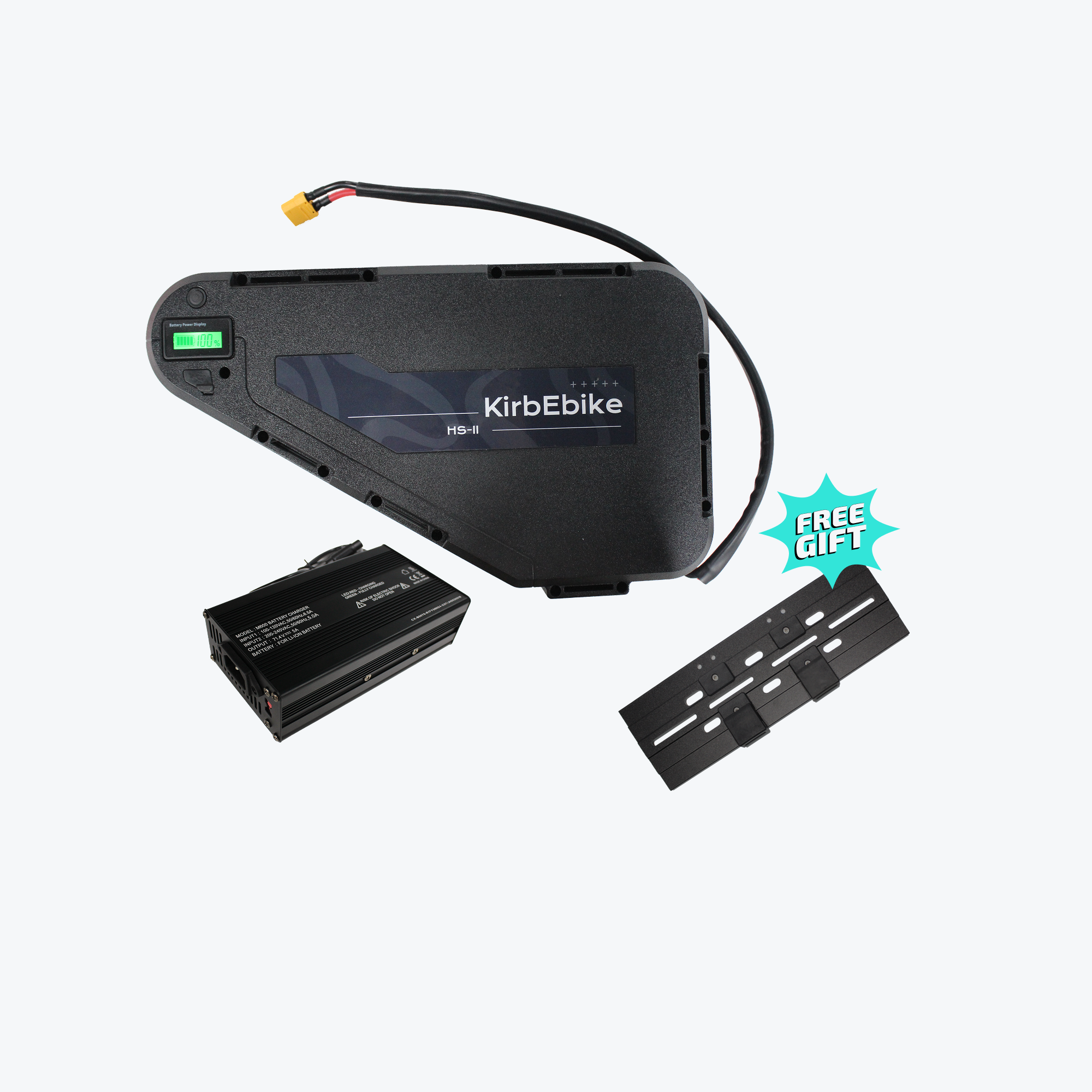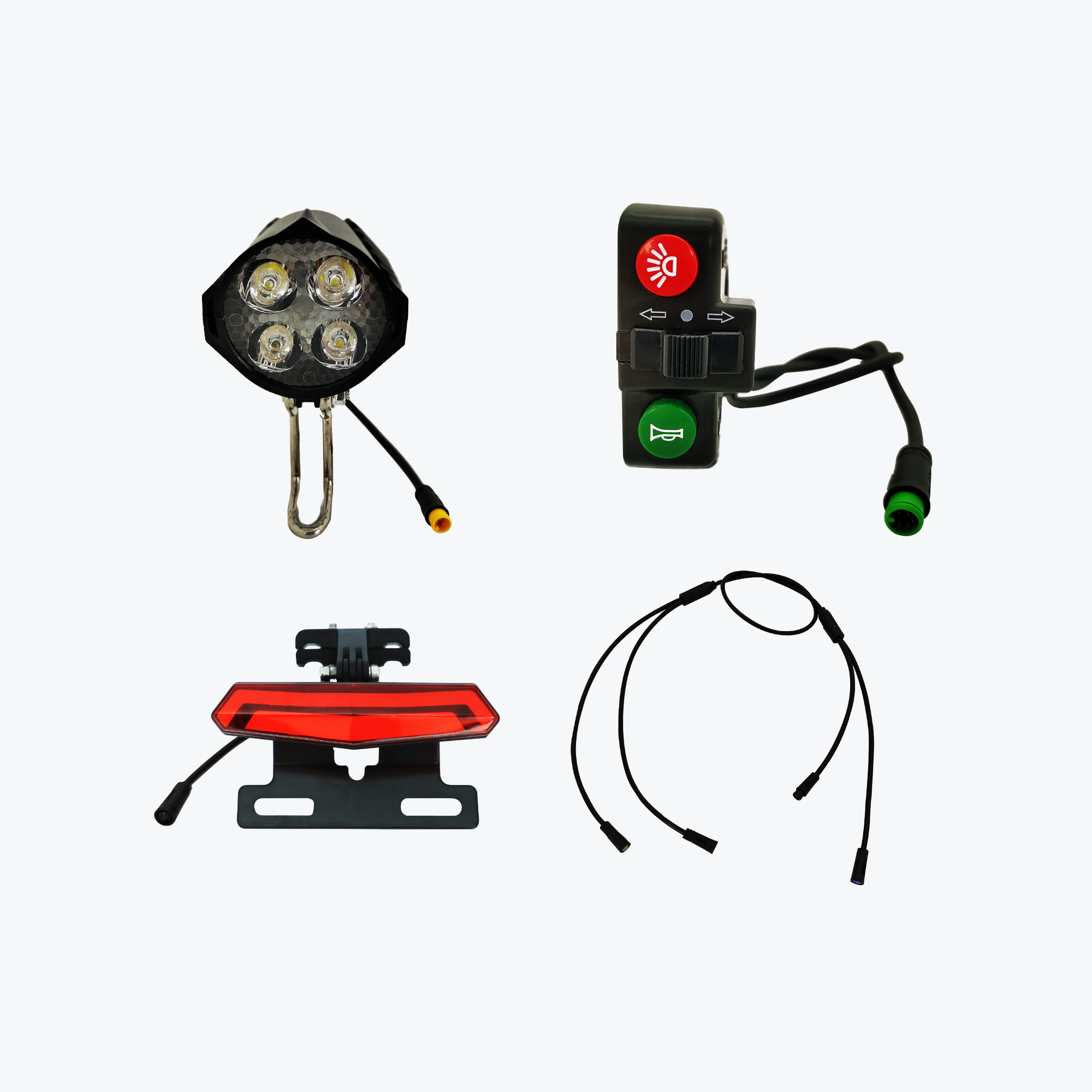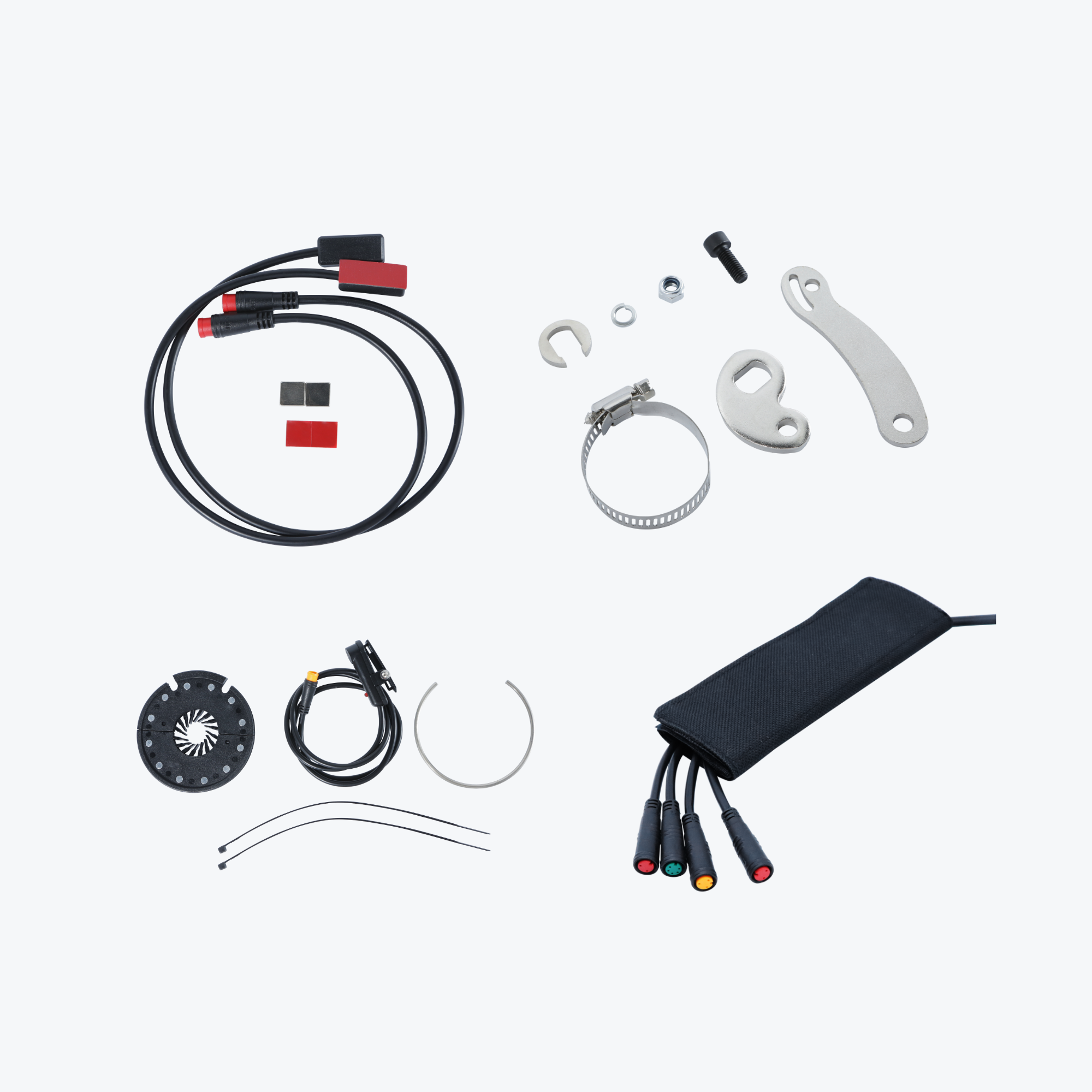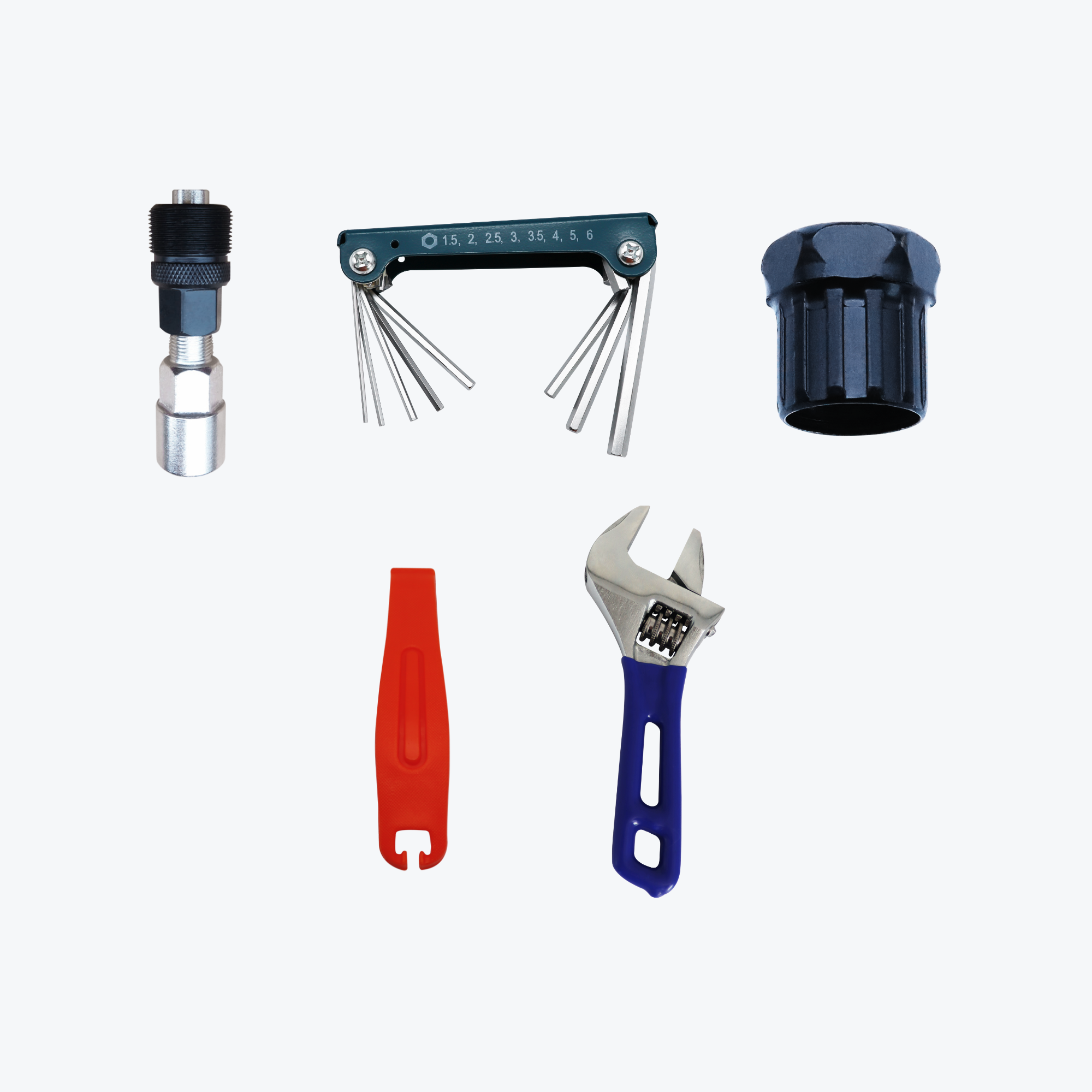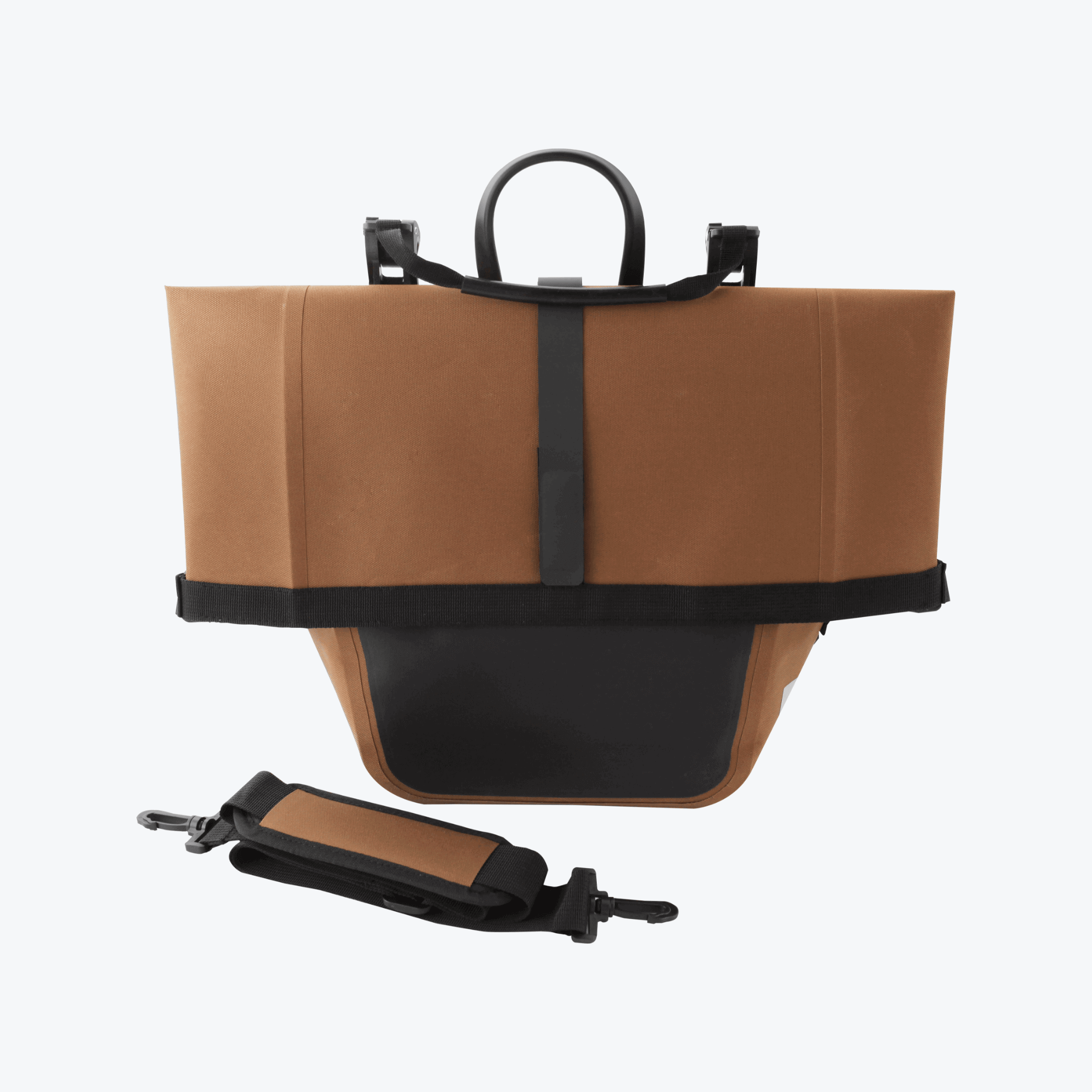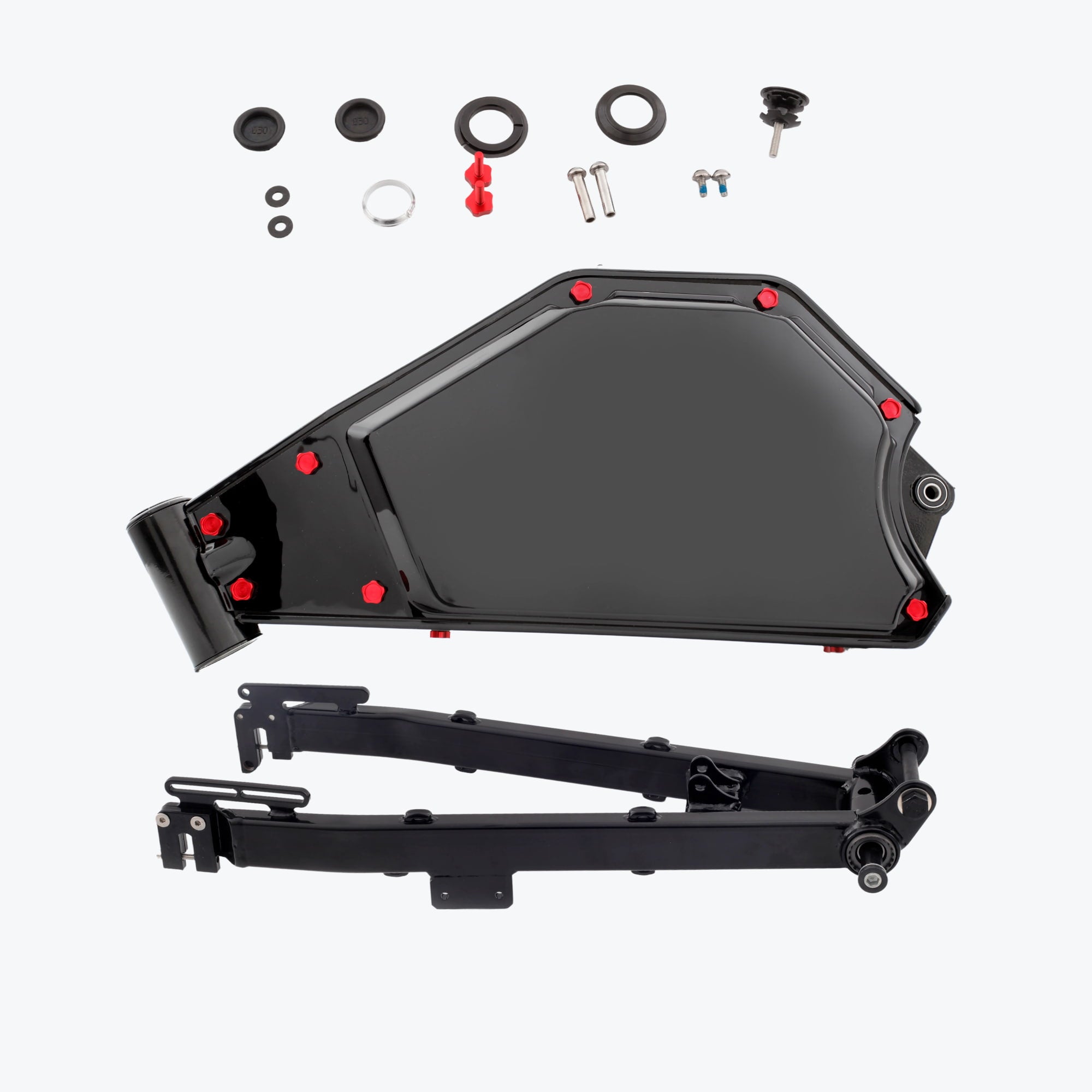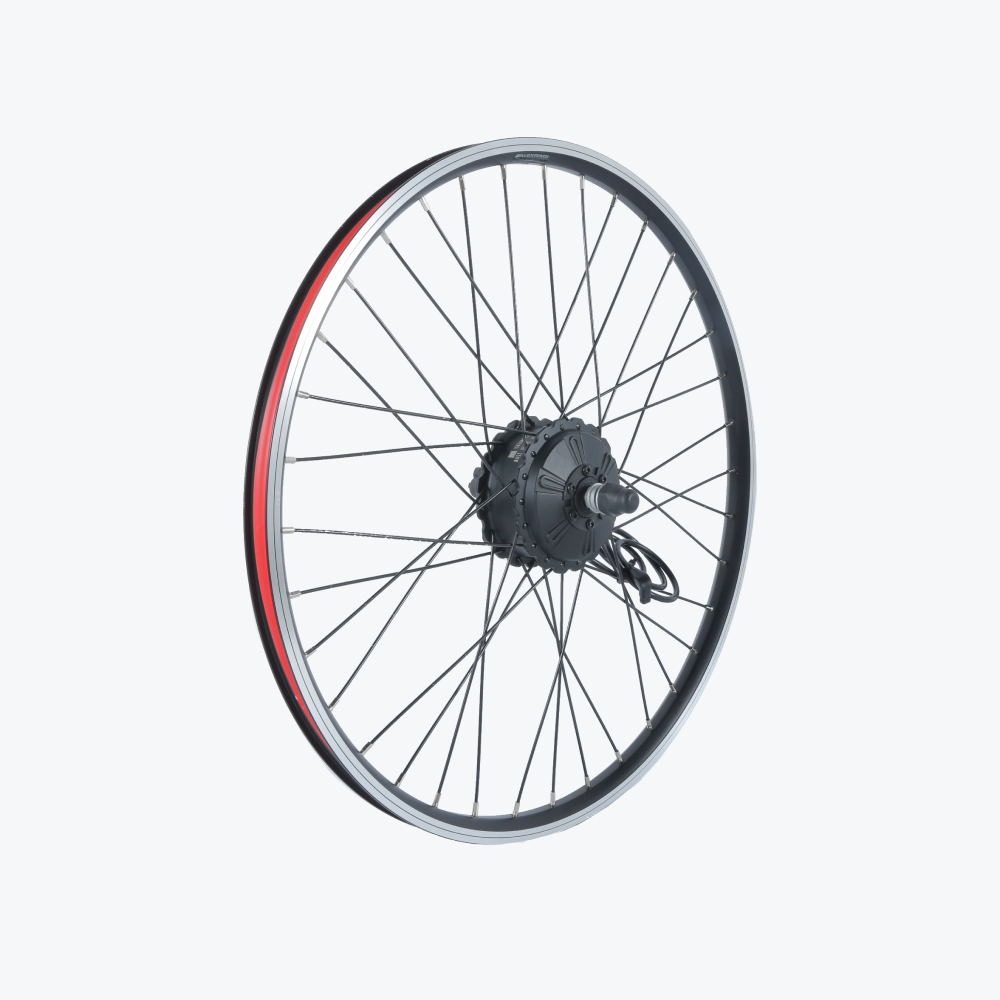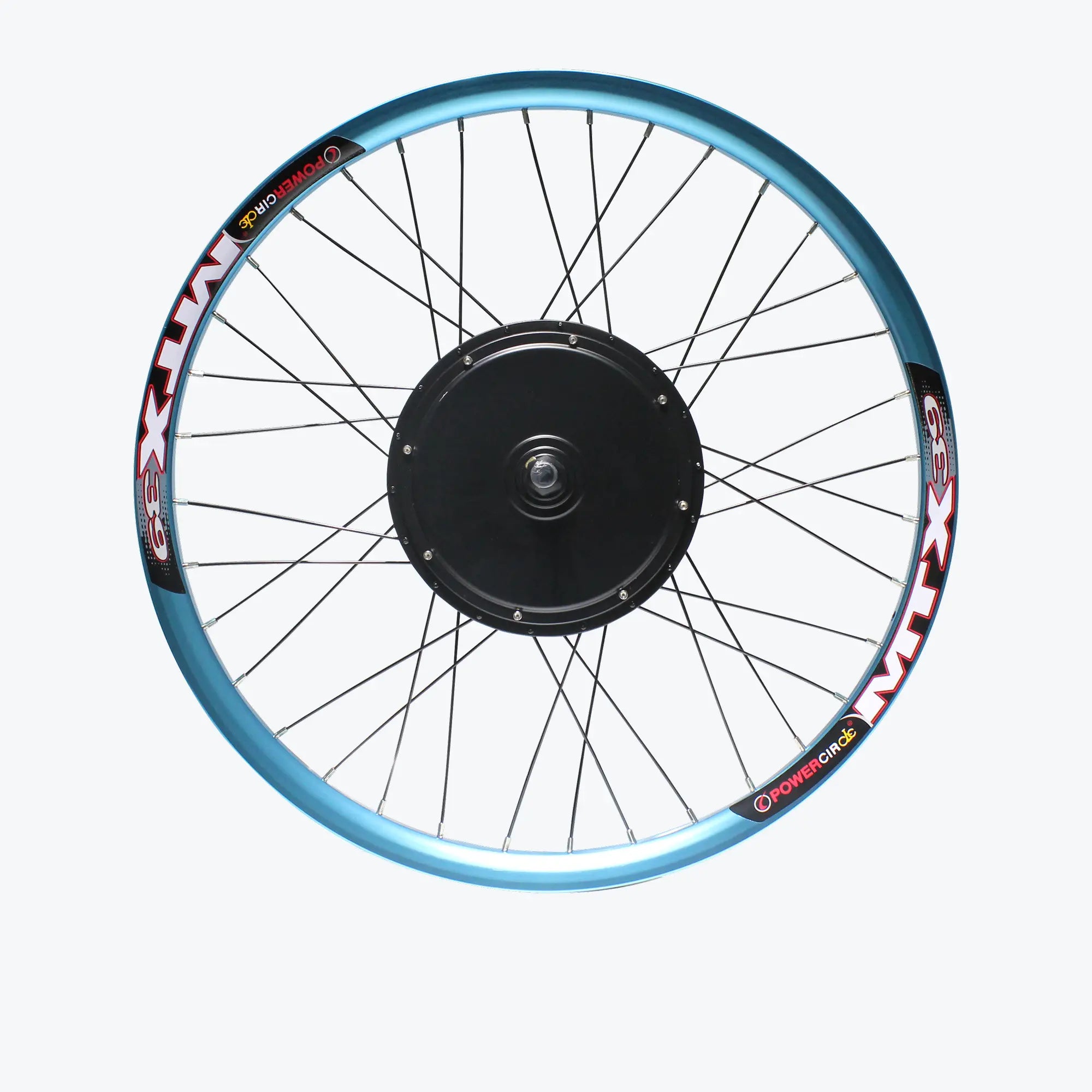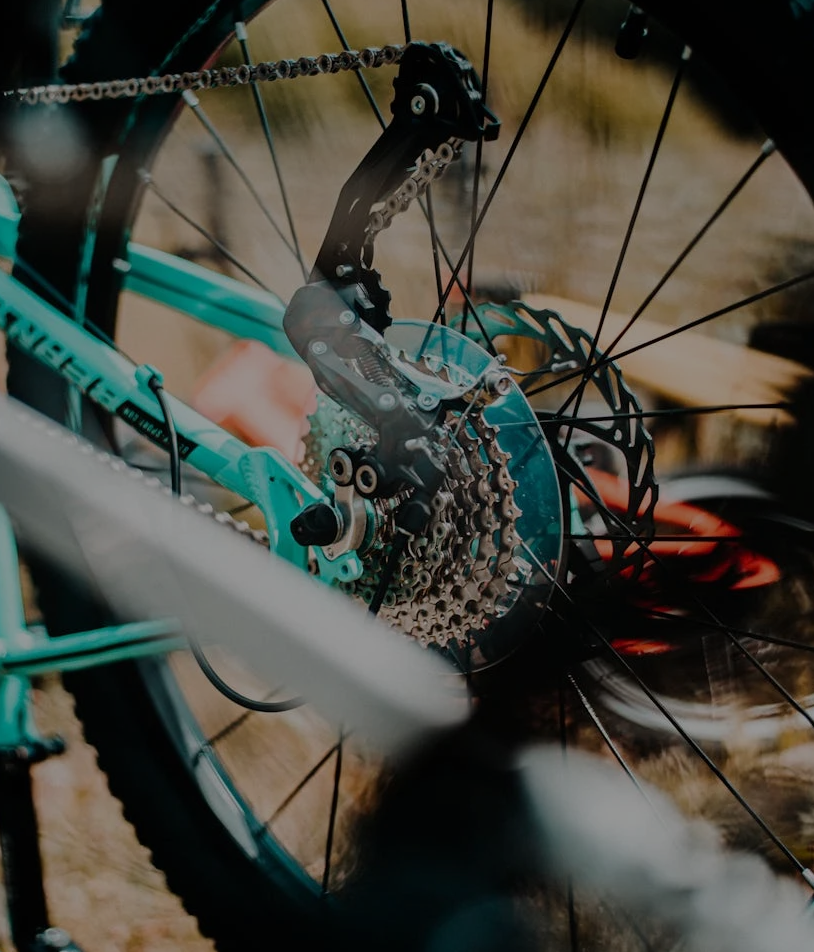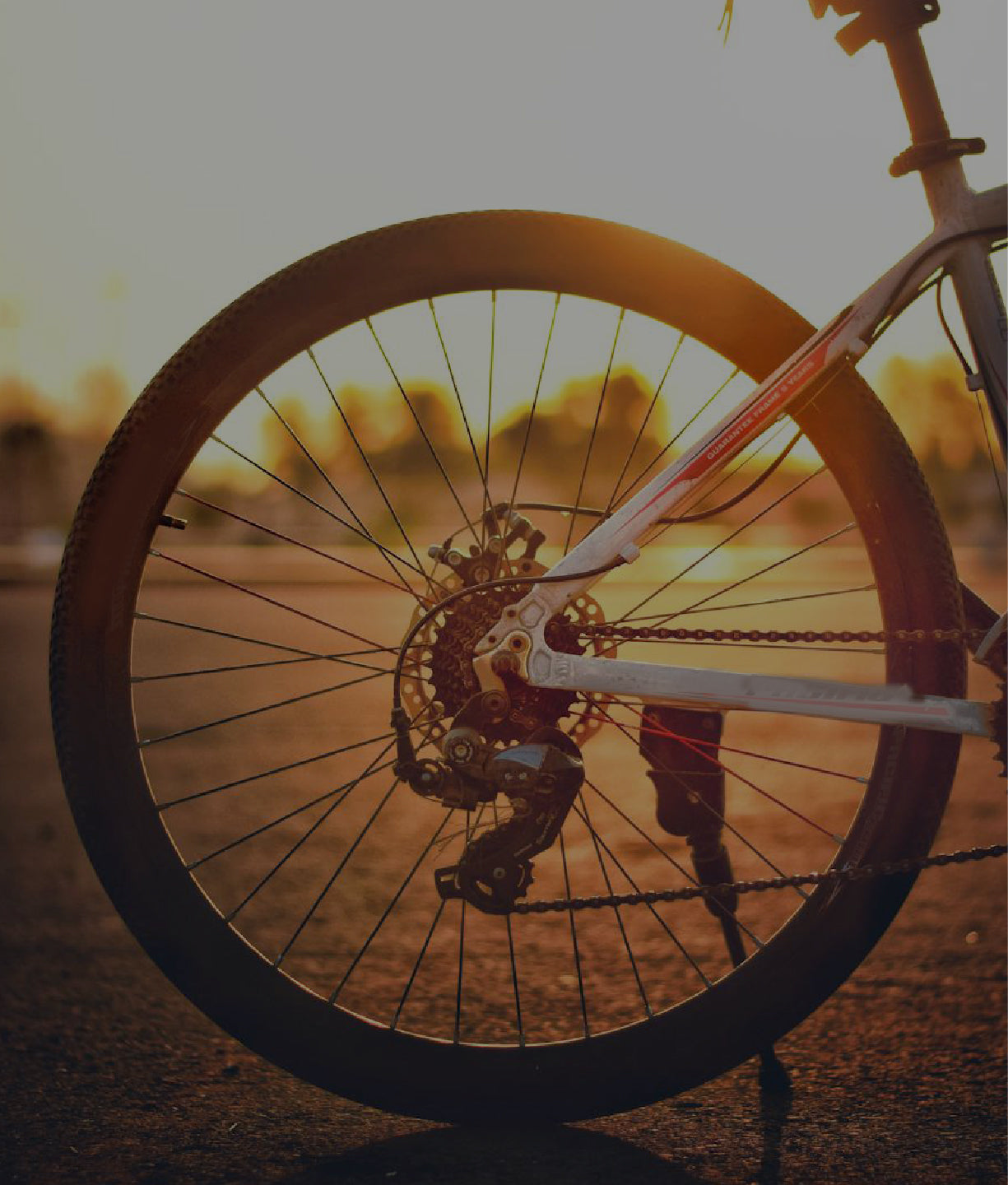Bike maintenance can be a crucial aspect of biking, especially if you are the type that values your bicycles for more than just functional uses. Here are the 6 Things You Need to Know About Bike Chain care.
Although this guide contains many tips, those interested in basic bike maintenance will learn important things like fixing, removing oil, changing a bike chain, and even putting a chain on a bike. However, one must learn these basic skills regardless of one's experience in cycling or cycling lessons as a beginner cyclist.
Tune in for how-to's with professionals' advice on enhancing the biking machine's efficiency through correct chain care. Acquire crucial information that will complement your bicycle desires and guarantee that your bicycle will stay fit for your upcoming exercises.
So, when you're ready to learn more about the chains of bikes, come back soon to discover how Kirbebike conversion kits work perfectly fine as additions to the typical bikes' parts, changing the way you ride.

How to Clean Bike Chain
Cleanliness of the bicycle chain is extremely critical to exterminate the wear and tear of your bicycle and to enhance the life expectancy of a bicycle.
Here's a guide on how to clean a rusty bike chain and effectively remove rust:
How to Clean a Rusty Bike Chain
- Remove the Chain:Place the chain on the clothes hooks and use a chain tool to pull the chain from the bike for a thorough cleaning.
- Soak in Degreaser:Use a marginally recommended cleaning solvent such as a degreaser to try and dissolve grease, dirt, rust and other dirt on the chain.
- Scrub the Chain:Next, take a brush to clean the chain's interior, paying special attention to the rusted areas, if any, to clear layers thickened on the metal surface due to rust formation.
- Rinse and Dry: Wash the chain with clean water and ensure it's thoroughly clean and dry before placing it back on the bike.
How to Remove Rust From Bike Chain
- Apply Rust Remover:Employ a relevant rust remover to help achieve its goal of removing rust from the chain.
- Scrub the Chain: If the ironwork has become rusty, you first need to cleanse the affected areas using a wire brush or a piece of steel wool.
- Wipe Clean: As you carefully wash it with vinegar, remove the rest of the rust with a mop or other cloth.
- Lubricate the Chain:Using a good quality lubricant on the bike chain also helps avoid subsequent rust formations.

How to Fix a Bike Chain
- Identify the problem: Look for issues like broken, twisted, or off-track chains.
- Gather tools: Have ready a chain tool, quick link, or spare chain pins.
- Fixing a broken link: Use a chain tool to remove and replace the broken link.
- Untwisting a chain: Reverse the twisting motion to untangle the chain.
- Reattaching a chain: Guide the chain back onto the gears and ensure proper alignment.
- Test the chain: Shift through gears to confirm proper functionality after repair.
Learn more about How to Fix a Broken Bicycle Chain.

How to Remove a Bike Chain
- Gather Necessary Tools: As for the core equipment, most of the time, clients already have the tools necessary, such as a chain breaker.
- Locate the Master Link: Locate the stationary part of the chain, called the headpin, and the moving part, which is loose with a button.
- Position the Chain Tool:Install the tool properly on the end rivet of the master link plate to enhance pushing.
- Break the Chain: Turning the tool's handle clockwise or counterclockwise with pressure relieves tension on the master link and releases the chain.
- Remove the Chain: Run the chain through the gears and derailleur in a sectioned manner.
- Inspect the Chain: Look for dust or other forms of filth that might be seen and should be wiped or washed off or portions that are worn out and need to be changed.

How to Oil a Bike Chain
- Preparation: Wipe the chain to remove dirt and debris. After washing the chain, use a degreaser and brush to ensure that the chain is clean.
- Selecting the Oil: Most lubricants recommend choosing the right chain lube depending on the place's climate with the bikes.
- Drip Method: The last step of this process is to apply oil to the chain while cycling backwards with only a small amount of pressure on the pedals.
- Excess Removal: If the surface is oiled, it should be wiped with a cloth to remove the formed dirt.
- Let it Set: Reduce the chances of the products meeting or mixing by letting the oil settle to the bottom of the containers before it is drained into the engine to lubricate it.
- Check the Lubrication: This is about the chain that connects the two parts in the engine; it is recommended to test the chain's functionality and, depending on the results, reapply oil as needed.

How to Change a Bike Chain
- Determine Chain Length: You should use them. Compare the old chain with the new one to ensure you get the correct size for your bike.
- Gather Necessary Tools:If chain replacement is necessary, gather equipment, including a chain tool, quick link, or new pins.
- Breaking the Chain:Remove an easily accessible chain link with the help of a chain tool and push out the pin so that such a link opens.
- Removing the Old Chain: Disengage the old chain from the bike by pulling them apart, but kindly ensure all the chains are uncoupled.
- Thread the new Chain: Screw the new chain onto the derailleur and around the gears in such a way that may help it be in the right position.
- Joining the Chain:To attach the new chains, you should use a quick link or chain tool to properly connect the new and the older ends.
- Testing the Chain:Shift through the gears to ensure the chain runs smoothly and operates as it should. Adjust the given spanner and screws accordingly to get the right tension.
Check out Electric bike maintenance: Components to watch for wear and tear.

How to Put a Chain on a Bike
- Gather Tools:While putting on the bike, ensure you have a tool for the chain, such as the chain breaker.
- Locate the Gears: It is also advisable to stand to access the gears you want your chain to accommodate easily.
- Thread the Chain:First, you should pass the chain over the rear derailleur and then make sure that the chain is lined up properly with the teeth of the gears.
- Engage the Chain:The chain should be carefully moved to the front chain and placed on top of the teeth.
- Joining the Chain: Alternatively, engage a master link or use a chain tool that will connect both terminals well.
- Check Tension: To test the chain tension, shift through the gears, and if there is tension, try to reduce it. These should be made as flexible as possible to cover the ground without failure and make iterations possible for smooth operation.
- Final Check: Ensure that the chain engages the cogs with sufficient clearance and the derailleur is set as expected for maximum efficiency.
Bike Chain Considerations Specific to e-Bikes
Cleaning e-bike chains requires precision due to motor assistance, which affects maintenance and wear. Key considerations include:
- Unique Maintenance Factors: E-bikes have higher chain tension and may require more frequent twisting to reduce wear.
- Lubrication Needs: Chains on e-bikes experience extra stress, wear out faster, and need frequent oiling for better performance.
- Wear and Tear Differences:Electric bike chains and sprockets wear out faster due to increased torque, necessitating regular checks and replacements.

Future Ride: Design Your Ultimate e-Bike Journey with KirbeBike
Explore Kirbebike's unique e-bike conversion kits for a personalized ride. Choose from a variety of kits tailored to your needs. Upgrade with quality components for reliability and efficiency. Receive expert guidance to optimize your e-bike experience. Unleash the full potential of your journey with kirbebike.
The Bottom Line
This guide has helped demystify some of the fundamental yet sometimes complex aspects of bike chain care, from fixing and removing a chain to oiling, changing and putting an on a bicycle, among others, for the cyclist who wants to keep their bicycle in the best condition.
As for any rider, some of these skills are basic; no matter how experienced he is, they will be paramount to getting the best out of the bike. Furthermore, because the tension in e-bikes is higher than in standard bicycles, and the lubes in all the parts wear out faster due to motor assistance, it is extremely important to pay attention to the chains.
Diving deeper into the latest self-designed e-bike offerings at Kirbebike, apart from the conversion kits and consultancy services, could enhance your overall cycling experience while guaranteeing the best form of your bike for any cycling activities you may have.

